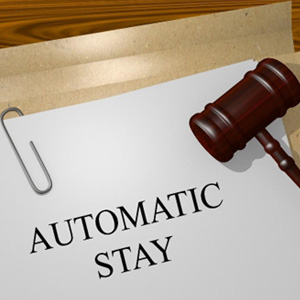The Automatic Stay: Using Bankruptcy To Prevent Foreclosure In New Jersey

- The duration of the automatic stay and the risks should it expire or be challenged by creditors.
- How to handle mortgage arrears and property foreclosures when filing for bankruptcy in New Jersey.
- What alternatives to bankruptcy exist to avoid foreclosure, and how an attorney can help.
How Long Does The Automatic Stay In Bankruptcy Last In New Jersey And What Happens If It Expires?
While the automatic stay offers extensive protection during bankruptcy, it doesn’t last forever.
In a Chapter 7 case, it ends when the debt is discharged or when the case is closed, whichever occurs earlier. Once the stay relief is granted or the stay expires in a Chapter 7 case, the debtors are no longer protected and the creditors can proceed with all other state court remedies.
In a Chapter 13 case, the stay will last during the entire three to five years of the plan, but if you default on any post-petition mortgage payments, the bank can seek relief from the automatic state and proceed with foreclosure. If the automatic stay relief is granted, you will no longer have its protection and the property can be re-listed from bankruptcy.
What Happens To Mortgage Arrears During A Bankruptcy Case In New Jersey?
If you do not want to lose your house after failing to pay several mortgage payments, those arrears can be included in a Chapter 13 bankruptcy plan. Once you have confirmed your plan in New Jersey, the Chapter 13 trustee uses your monthly plan payments to pay the mortgage arrears throughout the administration of the case.
These are often very significant claims, and you will not be allowed to directly pay the mortgage arrears to the creditor. You must, however, pay future monthly mortgage payments during the pendency of the case, but the arrears in all instances must be funded by plan payments by the Chapter 13 trustee.
Are There Any Potential Drawbacks Or Risks For Homeowners In New Jersey When Using Bankruptcy To Avoid Foreclosure?
If you are in an extremely challenging financial position and file a Chapter 13 case to avoid a foreclosure when you cannot fund a feasible plan and your case is dismissed, that affects your bankruptcy. notably by imposing a new filing for Chapter 13, within a limited timeframe, and having a Chapter 7 bankruptcy imposed if you fail.
After having your case dismissed, the automatic stay will only last for 30 days unless it’s reimposed by a motion which has to be filed within the first 30 days of the new case. Essentially, if are forced to file bankruptcy due to an imminent foreclosure sale and don’t succeed you will be at risk of having a more difficult time in trying to propose and confirm a new Chapter 13 plan in the second bankruptcy case.
How Does Reaffirming A Mortgage Loan Work And Does It Impact Foreclosure In New Jersey?
Realistically, the reaffirmation of a mortgage loan is not a preferred remedy for a creditor. A modification of a mortgage loan can sometimes work out fine for the debtor, but reaffirming a mortgage loan means that even if the bankruptcy does not succeed, the debtor will remain personally liable on that loan.
It is not recommended for most debtors to reaffirm either their first or second mortgage. Due to what could be wild fluctuations in the real estate market, if the secure party forecloses, ultimately you could be liable for any deficiency on that mortgage.
What Are Some Alternatives To Bankruptcy That Homeowners In New Jersey Can Explore To Avoid Foreclosure?
The New Jersey State courts have a foreclosure mediation process that must be sought early once a foreclosure is filed. This can sometimes be a legitimate and effective avenue to try to avoid foreclosure and bankruptcy.
Realistically, however, that process is not guaranteed to have any positive outcome, so while it has worked for some homeowners, there is no way to know ahead of time if it will work for you. Either way, it is certainly something you should discuss with an attorney.
How Will Consulting A Bankruptcy Attorney Help Homeowners Avoid Foreclosure?
Individual debtors are very often in denial about the true extent of their financial difficulties and are even less aware of what remedies may be available to them. Without consulting an expert who has knowledge of the field, you are not going to be able to evaluate different options or identify the best one(s) for avoiding foreclosure.
Sometimes, individuals tend to try to hang on to homes that they can’t afford and have very little equity over. In those instances, avoiding a foreclosure sale on the property by selling the house without having to resort to a bankruptcy filing may be their best option.
Without looking at your options through the lens of a bankruptcy attorney’s experience and considering their recommendations, you are potentially missing out on the best course of action to attempt to either mitigate or resolve your affairs.
For more information on the Role Of Automatic Stay In Foreclosure Defense, an initial consultation is your next best step. Get the information and legal answers you are seeking by calling (908) 373-8500 today.

Schedule A Consultation
(908) 373-8500
